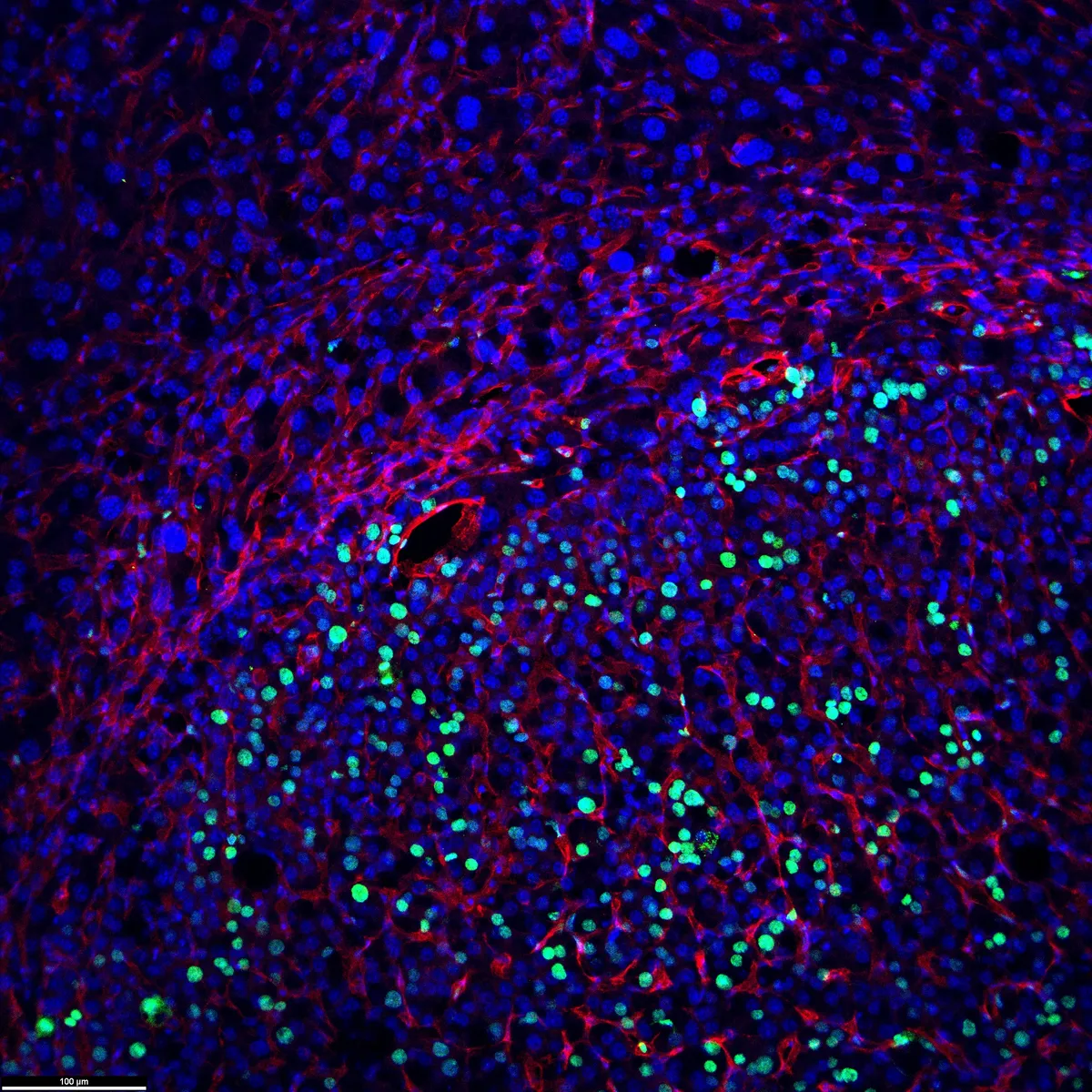According to estimates by the British Liver Trust, around one in six people in the UK have early stage non-alcohol related fatty liver disease (NAFLD) – a condition linked to being overweight or obese.
The condition begins as a non-harmful build-up of fat in the liver but it can develop into non-alcoholic steatohepatitis (NASH) - a more serious stage of NAFLD that can lead to liver cancer or liver failure.
Now, researchers at the University of Michigan have found that a hormone produced by fat cells can help to slow down the growth of liver tumours in mice.
The finding could lead to new treatments for hepatocellular carcinoma (HCC), the most common form of liver cancer, they say.
When studying the development of NASH in mice, the team noticed more severe levels of liver disease and a higher incidence of liver tumours when the amount of NRG4 - a hormone that is secreted primarily by fat cells – decreased.
They then boosted the genetic expression of NRG4 in fat tissue cells in mice with NASH using gene therapy and found that this slowed down the growth of liver tumours.

"A lot of studies on liver cancer focus on the cancerous liver cells themselves: how they proliferate and how they evade the immune system," said the study’s lead researcher Dr Jiandie Lin.
"But our findings break out of this liver-centred framework, showing a fat-derived hormone could actually reprogram the liver environment and have a very big impact on liver cancer development."
The team now plan to investigate the exact mechanism by which the hormone produces the protective effect and to look into approaches for improving its effectiveness.
Read more about cancer:
